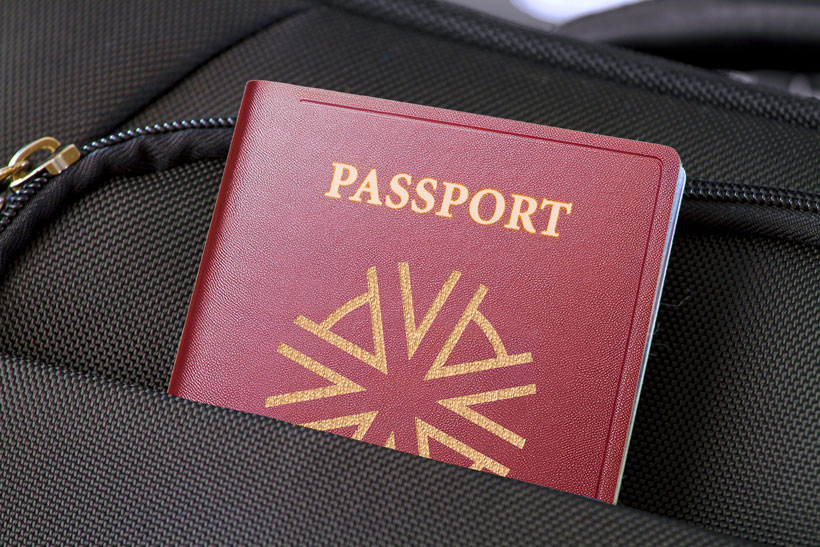Citizenship by investment is a simple process that allows HNW entrepreneurs, investors, and families to obtain alternative citizenship through investing in a nation’s economy. In the Caribbean, ESG investing plays a very central role and provides a win-win scenario for all parties involved.
Investment migration is one of the quickest and most straightforward ways to obtain citizenship through an expedited naturalization process.
However, it is an entirely different story for the host country. Creating, running, maintaining, and most crucially utilizing citizenship by investment programs for the country’s good is a complex matter that requires constant monitoring and evolution.
The Caribbean countries have signed an historic collective agreement to increase investment requirements to at least $200,000 “no later than 30 June 2024”
ESG investing and the Caribbean Five
Various countries offer citizenship by investment programs, but the ones that rely on its income the most are the Caribbean Five – the Eastern Caribbean countries of:
- Antigua & Barbuda
- Dominica
- Grenada
- St. Kitts & Nevis
- St. Lucia
Citizenship by investment revenues makes up a considerable part of these Caribbean nations’ modest economies, sometimes reaching 30% of their GDP and 50% of the liquid funds available to the government.
For this reason, the importance of adopting sound Environmental, Social, and Governance (ESG) principles within the citizenship by investment programs is essential, and the Caribbean Five have done so in an outstanding fashion.
A notable shift is occurring in the investment migration industry as nations incorporate more ESG principles into their programs – steering toward a more sustainable and responsible trajectory for economic development.
Caribbean citizenship by investment program programs, once primarily on bringing in unencumbered funds, now focus on directing investments toward initiatives prioritizing environmental well-being and community development.
The evolving terrain of ESG funding within the Caribbean citizenship by investment programs is helping these countries redefine economic growth with a holistic and responsible vision for the future.
What Is ESG and ESG investing?
ESG refers to the criteria used to evaluate a nation’s environmental sustainability, social responsibility, and corporate governance performance.
It is a solid indicator of the direction of a government’s policies and economic roadmap, and the higher the score, the more sustainable and resilient the economy becomes.
However, it is also a critically important type of investing that enables HNW entrepreneurs, investors, and families to leverage their success and financially support and mobilize the issues that matter to them personally.
ESG In Caribbean Citizenship By Investment Programs
Caribbean governments have recognized the importance of integrating ESG considerations into their citizenship by investment program programs to ensure that foreign direct investment [FDI] benefits and positively influences the environment and society.
The primary way these programs help the country increase its ESG score is through the donation option – an investor makes a non-refundable contribution to a government fund in exchange for the expedited naturalization to citizenship.
The Caribbean Citizenship by Investment Units (CIU) and relevant official authorities set up government funds to tackle ESG issues directly. The revenue from the donation option goes directly into these funds, allowing the governments to provide an influx of cash into the most essential ESG projects.
St. Kitts and Nevis – The Sustainable Island State Contribution Fund
St Kitts & Nevis, for example, has long focused on sustainable diversification of its economy through the help of its citizenship by investment program. St Kitts & Nevis‘ donation option currently funds its Sustainable Island State Contribution Fund (SISC).
The SISC supports the economic and social growth of the country by prioritizing seven “pillars,” which are:
- Increasing local food production
- Transitioning to Green Energy
- Diversifying the economy
- Attracting and supporting sustainable industries
- Evolving the Creative Economy
- Recovering from the impacts of the Covid-19 pandemic
- Expanding social protections and safety nets to protect the most vulnerable
But St Kitts & Nevis’ focus on ESG growth isn’t new. Its past fund, the Sustainable Growth Fund (SGF), which is now defunct, having been replaced with the SISC, focused on diversifying the economy of St Kitts & Nevis.
St Kitts & Nevis’ citizenship by investment program has allowed the country to diversify its economy, respond to natural disasters in real-time with influxes of much-needed funds, and pursue sustainable mega-projects.
The citizenship by investment program financially supported St Kitts & Nevis’ pursuit of sustainable, affordable housing. It also provided financial aid for creating a solar energy farm, which, upon completion, will be the largest in the Caribbean and mark a significant shift toward clean, sustainable energy.
Dominica – The Economic Diversification Fund
Dominica’s Economic Diversification Fund (EDF) supports “socioeconomic initiatives with the aim of driving national development.”
The fund has shown what a successful citizenship by investment program with proper planning and commitment to ESG development can do.
Contemporaneously, the fund is being leveraged to fund the nation’s first international airport.
The $320 million project, fully funded by the citizenship by investment program, will transform Dominica’s economy and open it up to the world on a scale never seen before.
Antigua & Barbuda – The NDF and the University of West Indies
Antigua & Barbuda has two donation options available. The first aligns more with ESG principles, as the National Development Fund (NDF) aims to fund and support “government sponsored projects, including public-private partnerships and approved charitable investments.”
Antigua & Barbuda’s second donation option is the University Of West Indies Fund, a mechanism for funding the university’s campus in Antigua. While the funds are not directly going into a new ESG project, they do go into funding an institute that has had a transformative socioeconomic effect on the nation.
Grenada – The National Transformation Fund
Grenada’s National Transformation Fund (NTF) aims to transform “Grenada’s economy into one that is ever more prosperous and independent.” It follows the same path as the other Caribbean states, and since Grenda’s economy has largely been based on agriculture and tourism, an ESG approach is vital for the nation’s growth, and the NTF can help with that.
In fact, 65% of the projects undertaken by the Ministry of Social Development and Housing between 2016 and 2022 were directly funded by the NTF.
This statistic highlights the remarkable impact that investor contributions can have on the nation’s sustainable development and social welfare.
St.Lucia – The National Economic Fund
St Lucia’s National Economic Fund (NEF) has less description on the CIU’s website, but its practice follows in the footsteps of the other Caribbean countries.
The NEF aims to enhance “the infrastructure and utilities” available to its citizens, a group to whom successful citizenship by investment applicants becomes a part.
Caribbean governments are also quick to recognize situations when a new ad hoc ESG fund is needed, such as was the case with St Kitts & Nevis’ Hurricane Relief Fund (HRF), which the government quickly introduced as a new investment option under its citizenship by investment program in response to a problematic hurricane season in 2016 and 2017.
St Lucia’s COVID Relief Bonds (CRB) is another example, as they came as an economic lever that allowed the government to continue pursuing ESG projects while maintaining a positive cash flow during the financial crisis of the COVID pandemic.
These Caribbean nations are small in size, and while they are rich in natural resources, those resources are not very diverse. Adopting high-tier ESG investing principles is essential for their growth, and the Caribbean Five have done a remarkable job orienting their citizenship by investment programs to aid in their objectives.
Astons supports ESG investing and helps to eliminate greenwashing
By creating a clear ESG roadmap, investors can choose the program and the donation option with the ESG effects that best align with the investor’s personal preference.
Gaining citizenship by investment makes a person a part of the country, and instead of blindly investing money into whatever venue is available, investors get to make a difference in the place they can call home, and they get to choose what that difference looks like.
There are many big and small ESG projects in the Caribbean, many of which are funded wholly or partially by citizenship by investment programs. Investors can now make a conscious decision that suits their preferences and social responsibility goals while simultaneously obtaining a second citizenship.
Enabling and empowering HNW entrepreneurs, investors, and families to realize their ESG visions within Caribbean citizenship by investment programs is a core element of the Astons service to our clientele.
To learn more about the Caribbean programs, their investment options, and moving forward as soon as possible, contact Astons and schedule a free consultation.
Frequently Asked Questions
It is no secret that when dealing with government agencies, transparency can always be a concern.
The good news is, when it comes to investment migration – and specifically citizenship by investment programs – and in relation to financial disclosure transparency, three of the Top 4 programs are in the Caribbean:
- Malta citizenship by investment
- Antigua & Barbuda
- St. Lucia
- Grenada
All of the programs in the Caribbean Five provide a viable ESG investment option.
However, there is one program that stands out above the rest – the Grenada citizenship by investment program.
Between the years, 2016-2022, nearly three-quarters of the projects completed by the country’s Ministry of Social Development and Housing were directly funded by the citizenship program’s ESG fund option – the National Transformation Fund.
These projects included:
- Housing subsidies to island residents
- Upgraded infrastructure
- New state-of-the-art hospital
The good news is, all of the Caribbean Five have English as their official language.
However, due to the fact that various European empires have had incredible influence in the Caribbean at various times throughout history, a few other languages are also common, including:
- Spanish
- Dutch
- French
Yes, in fact, this benefit is among the many reasons why US HNW entrepreneurs, investors, and families leverage Caribbean citizenship by investment programs – US courts have no authority over the banks.
Caribbean citizens can not only still leverage the offshore banking options – such as those in St. Kitts and Nevis – but accounts opened by citizens of St. Kitts and Nevis enjoy the increased privacy benefits that foreigners don’t.
You can read more about that in our article: OFFSHORE BANKING & TRUSTS: #1 WEALTH MANAGEMENT SOLUTION
HNW entrepreneurs, investors, and families should first consider how they wish to align their investment, using factors such as: their personal values and vision along with their own ESG criteria.
Then, they can analyze those factors in comparison with the stability and reputation of the country, potential financial returns, and the legal and tax implications of dual citizenship.
Astons’ seasoned Caribbean experts can assist any HNW entrepreneur, investor, and family in this process in the initial free consultation.
















